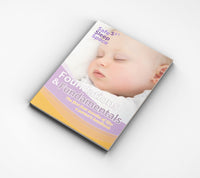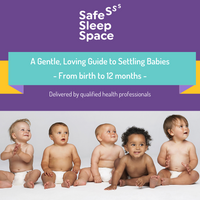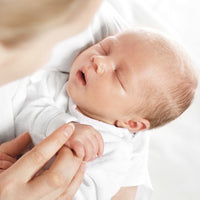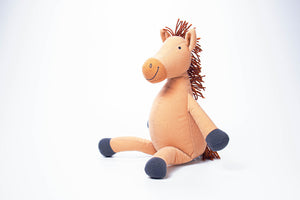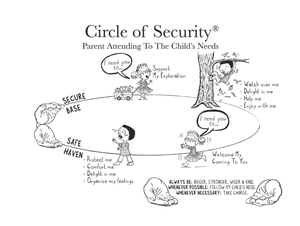How to boost executive function in children

Key points
- The foundations of executive function are laid down when babies are very young.
- Genetics, environment and positive experiences all contribute towards executive functioning skills.
- Having a safe, secure and stimulating home helps to support a child’s executive functioning.
- Babies aren’t born with skills in controlling their impulses – they learn them over time through their experiences.
What is executive function?
Executive function is a way to describe a particular set of skills which humans of all ages use. These skills help us to make plans, solve problems, control our impulses and stay on task without getting distracted. Executive function is also what we use when we make step by step plans in working towards a goal.
Another way to describe executive function is self-regulating skills.
Executive function is not something we are born with, but rather a range of skills which we develop over time. Babies and very young children don’t have the maturity or capacity to use executive function skills until they have developed between the ages of 3-5 years. This is why so much of their behaviour is impulsive and reactive, especially in the toddler years. Although this can be frustrating for parents to manage, it’s also very normal and useful to remind ourselves that young children generally do the best they can, with what they’re capable of doing.
Executive function is also the ability to manage lots of information at the same time and not become overwhelmed. This means changing plans as new details come up, being flexible and keeping a check on mistakes. Fighting the temptation to become frustrated over situations is a skill which relies on a healthy foundation in executive functioning.
Why is executive function so important?
The ability for a child to display self-control, follow multiple steps towards solving a problem and staying ‘on task’ are all building blocks for learning.
Evidence has shown that as early as 12 months of age, a young child’s experiences help to lay the foundation for the ongoing development of executive function skills.[1]
Some adults appear to struggle with their executive functioning and perhaps, for some, this may be related to their own early experiences. When children are raised in what we term, ‘toxic’ environments, much of their energy is going into protective, rather than learning responses. Their brain is too busy helping them feel safe and focusing on survival, and not early learning and social skills.
Won’t my child just develop skills over time no matter what I do?
It’s a common assumption that young children will just mature out of their impulsive behaviour and learn self-control when they are ready. But the truth is that being able to plan, ignore distractions and be flexible don’t just happen automatically. And that the foundations of learning these new skills rely on a type of brain wiring which is laid down in early childhood and then follows an extended timetable which stretches beyond adolescence.[2]
Like building a house, unless the foundations are strong, there’s inevitably problems later on.
How can I support my child’s executive functioning?
You don’t need to do too much, other than be kind and predictable when caring for your baby. In fact, like so many parenting strategies in the early years, it’s not so much about what you do, as much as what you don’t do. Unhealthy adult relationships, financial strain and hardship, housing instability and constant stress all contribute to the general mood of the household.
Although you may be trying to do what you can to insulate your child from stress, all young children are sensitive to their environment and the relationships between the adults around them.
10 ways to support your child’s development
- Aim to keep things simple in your family and home life. Where possible, avoid making decisions which will make life more complicated and difficult. Raising a family is already hard work.
- Care well for yourself. If your physical and emotional needs are not being met, then you won’t be in the best position to be a nurturer. So, put yourself first and then the family and household. If you’re struggling with your mental health, speak with your GP and explore counselling options.
- Respect your child as a separate and unique individual. Although you and your partner made them, there is a limit to how much influence you will have over how they mature into adults.
- Start by encouraging your baby to pay attention to you. Games like ‘peek-a-boo’ help to support memory and self-control.
- Encourage your young child to play with you. Taking turns, role playing, using your imagination and waiting for them to respond all help to ‘scaffold’ their learning opportunities.
- Offer your child gentle praise when they are trying and hold back on any criticism.
- Appreciate that it can take years of exposure, practice and repetition for children to learn skills towards being proficient in executive functioning skills.
- Appreciate the value of having household routines so that your child can predict what’s coming next.
- Be open to different ways of teaching your young child. We all have different ways of learning; some people are more visual, others more auditory and some learn best by doing.
- Allow for fun and joy each day. What’s important is the quality of the relationship you have with your child - from this, everything else will flow.
What can I do if I have concerns about my baby’s development?
Speak with your GP and/or Child Health Nurse. They can do a developmental assessment check to assess if your baby is developing as they need to be. If necessary, they will refer your baby to a child development team who will be able to conduct more detailed assessments. Check the Red Flags Early Identification Guide for general information.
About the Author:
Written for Safe Sleep Space by Jane Barry. Jane has qualifications in general, paediatric, immunisation, midwifery and child health nursing. She holds a Bachelor Degree in Applied Science (Nursing) and has almost 35 years specialist experience in child health nursing. She is a member of a number of professionally affiliated organisations including AHPRA, The Australasian Medical Writer’s Association and Australian College of Children and Young People’s Nurses.
References
Executive Functioning - Kid Sense Child Development
https://www.childrens.health.qld.gov.au/wp-content/uploads/PDF/red-flags-a3.pdf
[1] https://developingchild.harvard.edu/resources/what-is-executive-function-and-how-does-it-relate-to-child-development/
[2] https://developingchild.harvard.edu/resources/what-is-executive-function-and-how-does-it-relate-to-child-development/
